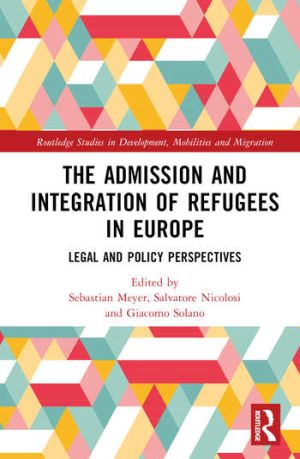
The Admission and Integration of Refugees in Europe argues for a more interconnected understanding of laws and policies for the admission and integration of refugees and asylum seekers in the European Union.
Admission and integration normally refer to different phases of the migratory process, but this demonstrates that they are inherently interconnected. Certain legal statuses conferred in admission procedures are directly relevant for the integration prospects of migrants, and the success or failure to integrate has potential repercussions for residence rights, although refugees are in that respect better protected than other immigrants. Legal pluralism further complicates the European context, as admission is often seen as under European Union jurisdiction, and integration as a member state consideration. However, the book argues that this legal pluralism in fact helps us to better explain how interaction between admission and integration takes place across laws and legal orders. Combining broad conceptual and constitutional analysis with closer readings of specific policies and country-specific case studies, this book demonstrates the potential for specific admission policies to either promote or hinder integration.
This book will be an important contribution to debates on European asylum and refugee law, human rights, and migrant integration policy.